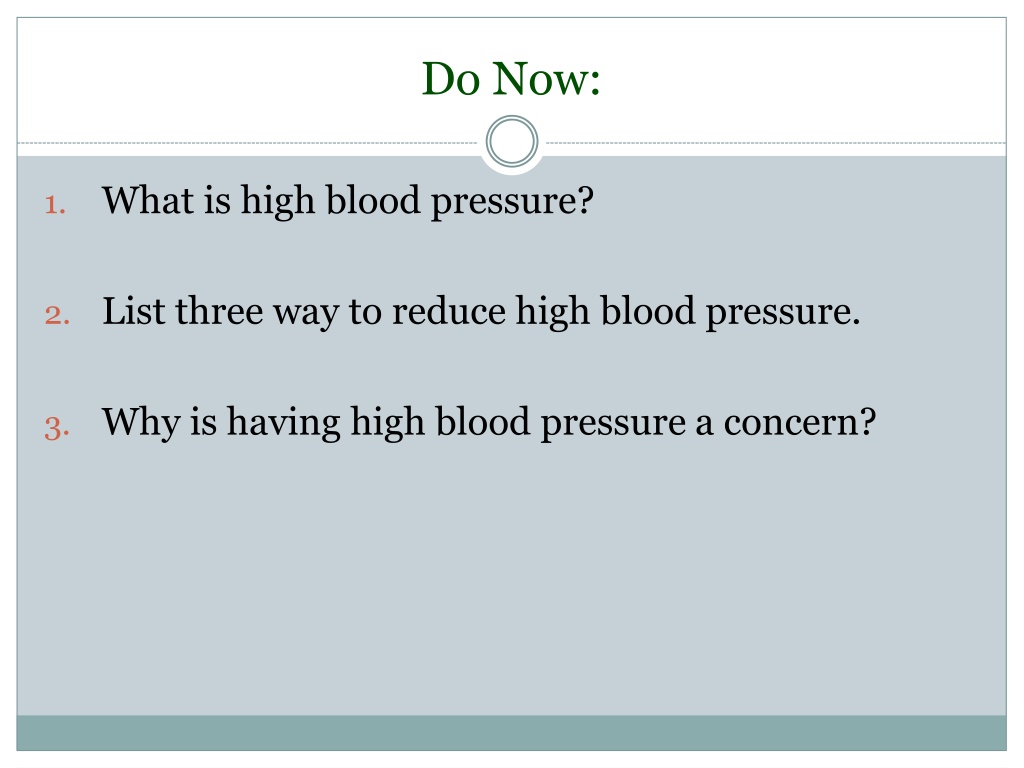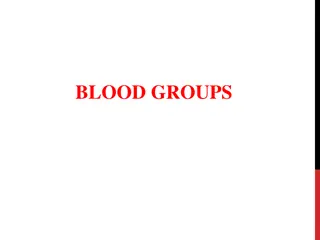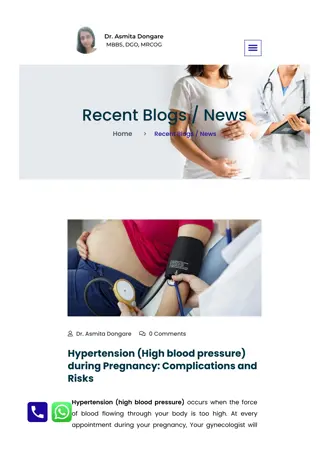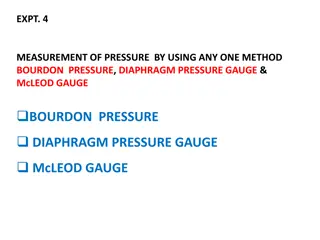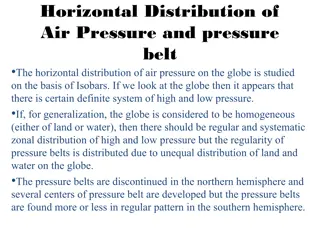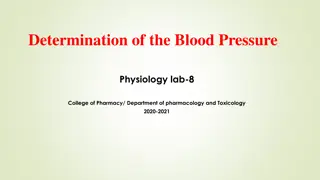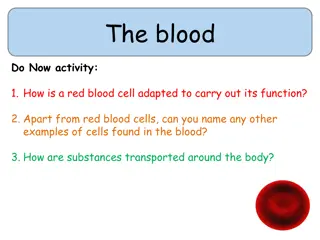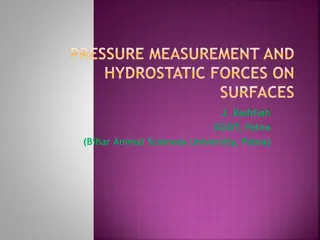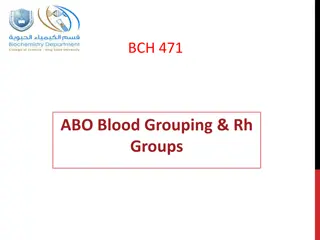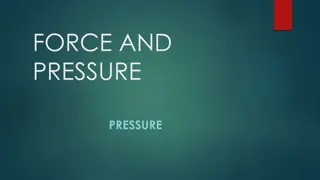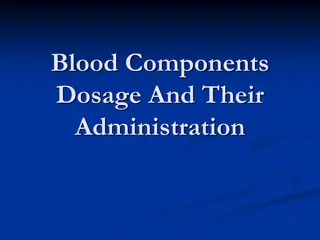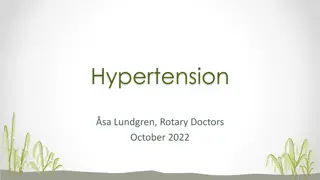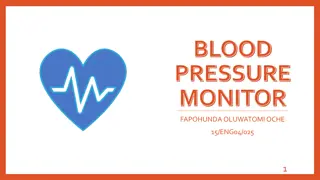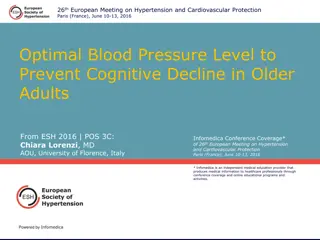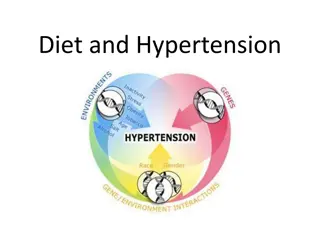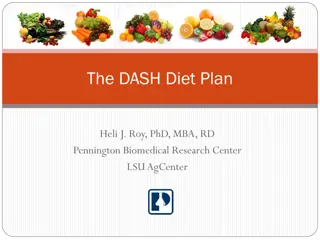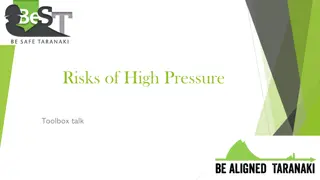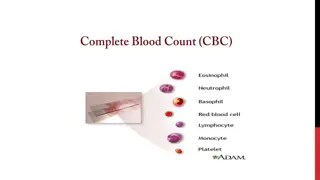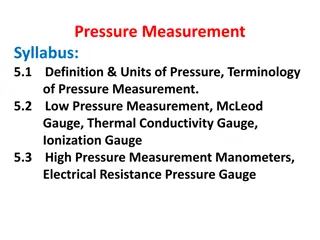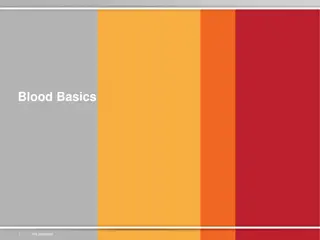Understanding High Blood Pressure: Causes, Risks, and Management
High blood pressure, or hypertension, is a condition where the blood exerts elevated force against artery walls, leading to increased heart workload and potential damage to arteries. It poses risks for heart disease, stroke, and kidney issues. Pre-hypertension and danger zones indicate different stages of elevated blood pressure levels. Lifestyle changes, such as a balanced diet like the DASH diet, reducing salt intake, and regular exercise, can help manage high blood pressure and reduce associated risks.
Download Presentation

Please find below an Image/Link to download the presentation.
The content on the website is provided AS IS for your information and personal use only. It may not be sold, licensed, or shared on other websites without obtaining consent from the author. Download presentation by click this link. If you encounter any issues during the download, it is possible that the publisher has removed the file from their server.
E N D
Presentation Transcript
Do Now: What is high blood pressure? 1. 2. List three way to reduce high blood pressure. 3. Why is having high blood pressure a concern?
What is hypertension The physical force exerted by the blood as it pushes against the walls of the arteries. An elevated blood pressure means that the heart must work harder to pump blood. High blood pressure can also damage the walls of the arteries. With time, hypertension increases the risk of heart disease, kidney disease, and stroke.
Symptoms - silent killer - Major risk for strokes and heart attacks - If not treated, lungs, brains, kidneys, heart and circulation may be damaged - Cause is unknown
Systolic and Diastolic Systolic = pressure when the heart beats Diastolic = pressure between heart beats (while heart is refilling with blood) Normal: 120/80
Pre-hypertension Blood pressure is just above normal Life style changes can help in this stage
Hypertension Danger Zone * BP is 140/90 or higher Still may not have symptoms 180/110 or higher Hypertensive crisis Rest and re-measure Still high? Call 9-1-1 Symptoms: anxiety, nosebleed, severe headache, SOB
Who gets high blood pressure? Common in older adults Men > Women People with diabetes Family history with high blood pressure Overweight African Americans
Risk factors Too much salt no more than ____ Poor nutrition Caffeinated beverages
Treatment DASH diet dietary approach to stop hypertension Vegetables Nuts Fish Poultry Whole grains Fruits
Other treatments Exercise Medications Relaxation techniques Careful meal planning
